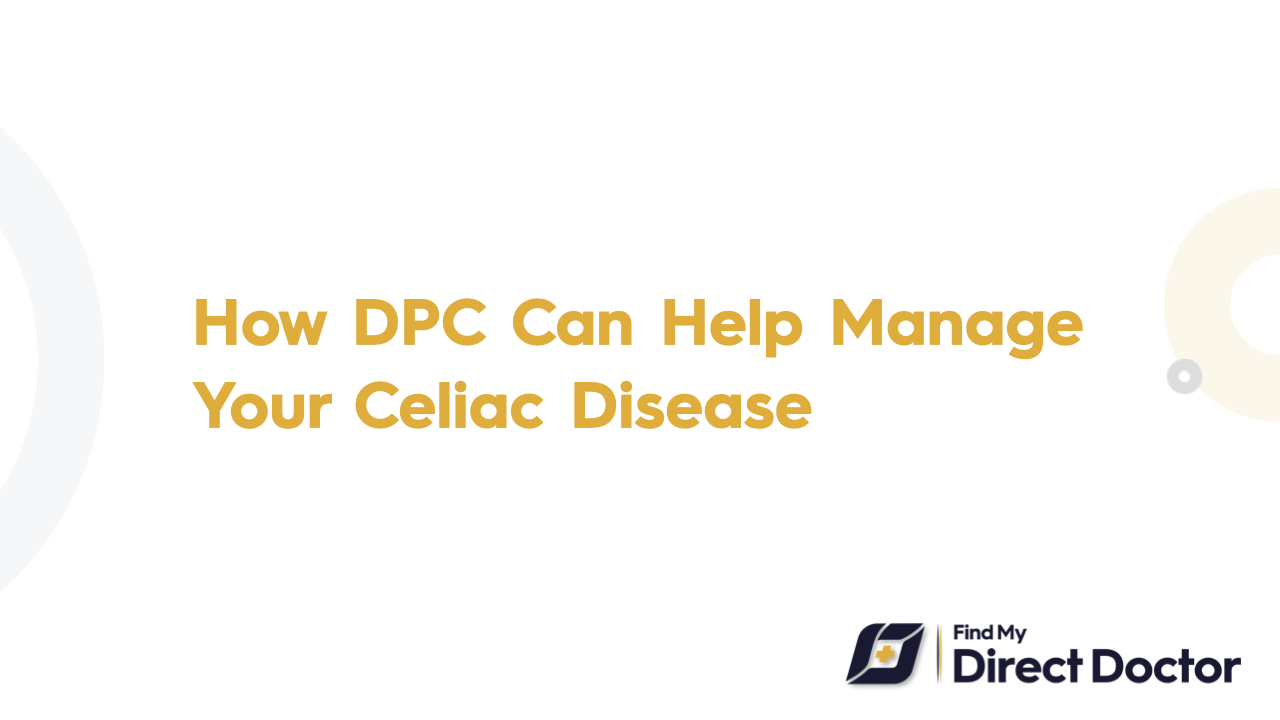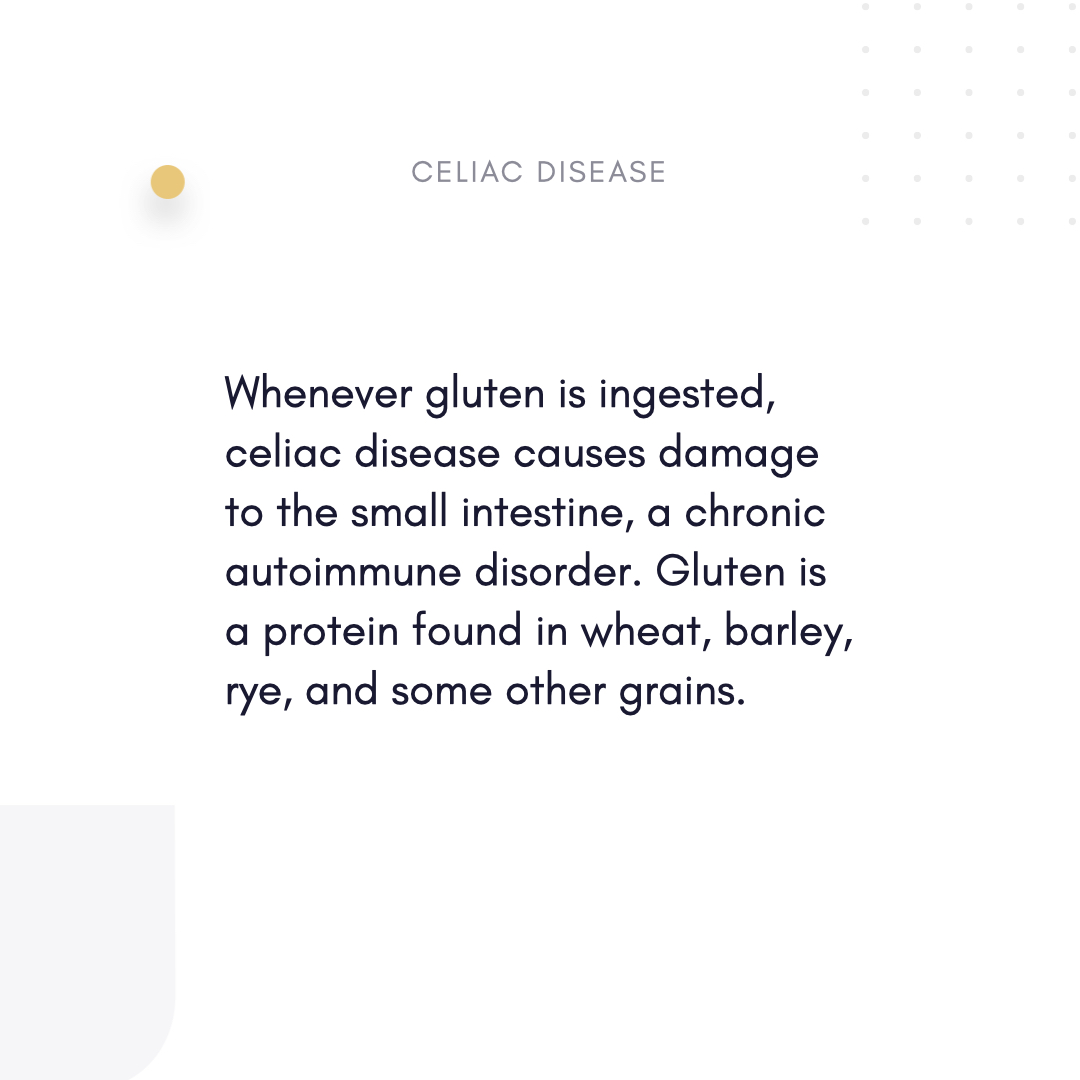Direct Primary Care (DPC) for Celiac Disease: Comprehensive, Lifelong Care for Optimal Health
Celiac disease (CD), gluten-induced autoimmune disease, calls for careful dietary control and lifetime monitoring to avoid effects including lymphoma, osteoporosis, and malnutrition. Stressing accessibility, individualized care, and perfect coordination with experts in line with American College of Gastroenterology (ACG) and Academy of Nutrition and Dietetics recommendations, Direct Primary Care (DPC) provides a patient-centered model ensuring patients thrive on a gluten-free lifestyle.

DPC Improves Early Discovery and Validation for Treatment of Celiac Disease
- Look at chronic GI problems (diarrhea, bloating), tiredness, or anemia in CD.
- Order serologic tests (tTG-IgA, EMA), then schedule endoscopic biopsies for a definitive diagnosis.
Medical Nutrition Therapy (MNT) Guidelines
- Eliminating gluten: Share safe substitutes (such sauces and drugs) and hidden gluten sources tools.
- Dietary cooperation: Dietitian cooperation plan your meals in balance to prevent cross-contamination and take care of dietary deficiencies including calcium, B12, iron.
Stopping Mistakes
- Frequent observation: Using repeated tTG-IgA tests and symptom evaluations, track intestinal healing per ACG recommendations.
- Calcium/vitamin D malabsorption calls for DEXA scans to look for osteoporosis or osteopenia.
DPC Services Celiac Disease Patients Around-Clock
- For urgent issues (like extreme reactions or accidental gluten intake), direct letters.
- Customized food plans, lifestyle counseling, and management of comorbid diseases—such type 1 diabetes or thyroid problems—have their impact.
- A consistent supplier follows gluten-free living and considers long-term health to guarantee early complication identification.
- Spending clarity is: Flat fees cover dietary recommendations, consultations, chronic disease management—no hidden costs.
DPC Lifestyle & Dietary Plans: Individualized Management of Celiac Disease
- Coach kitchen safety through instruction in ways to prevent cross-contamination—separate utensils, gluten-free appliances.
- For safe dining out, recommend approved gluten-free brands and apps like Find Me Gluten Free.
Systems of Health: Integrated
- Look for skin diseases, autoimmune thyroiditis, or liver diseases including herptiformis.
- Counseling referrals help you to overcome dietary restriction-related anxiety or social challenge.
Family and Genetic Fixing
- Celiac risk is estimated in first-degree relatives by means of HLA-DQ2/DQ8 gene screening.
- Help parents to control gluten-free diets for their children so guaranteeing growth and development.
Why DPC Excels in Control of Celiac Disease?
- The ACG Prague is: Set up frequent follow-ups, endoscopic assessments, and dietary adherence tests as advised.
- With ongoing support, approach social, emotional, and physical aspects of gluten-free life holistically.
- Team for coordinated treatment including dietitians, gastrointestinal experts, and mental health professionals.
Notes from Days Past
- Living with celiac disease requires awareness; DPC’s proactive approach changes treatment into a team effort free of stress.
- DPC helps patients to avoid complications and restore their quality of life by combining ACG-aligned monitoring, tailored diet therapy, and perfect specialist coordination.
- For others on gluten-free diets or concerned about cross-contamination, DPC’s availability and knowledge is transforming.
- Imagine same-day recommendations following accidental gluten exposure or a provider scheduling your counselor, gastrointestinal specialist, and dietitian.
- DPC helps you to manage celiac disease by empowering your health without sacrificing any other quality.






